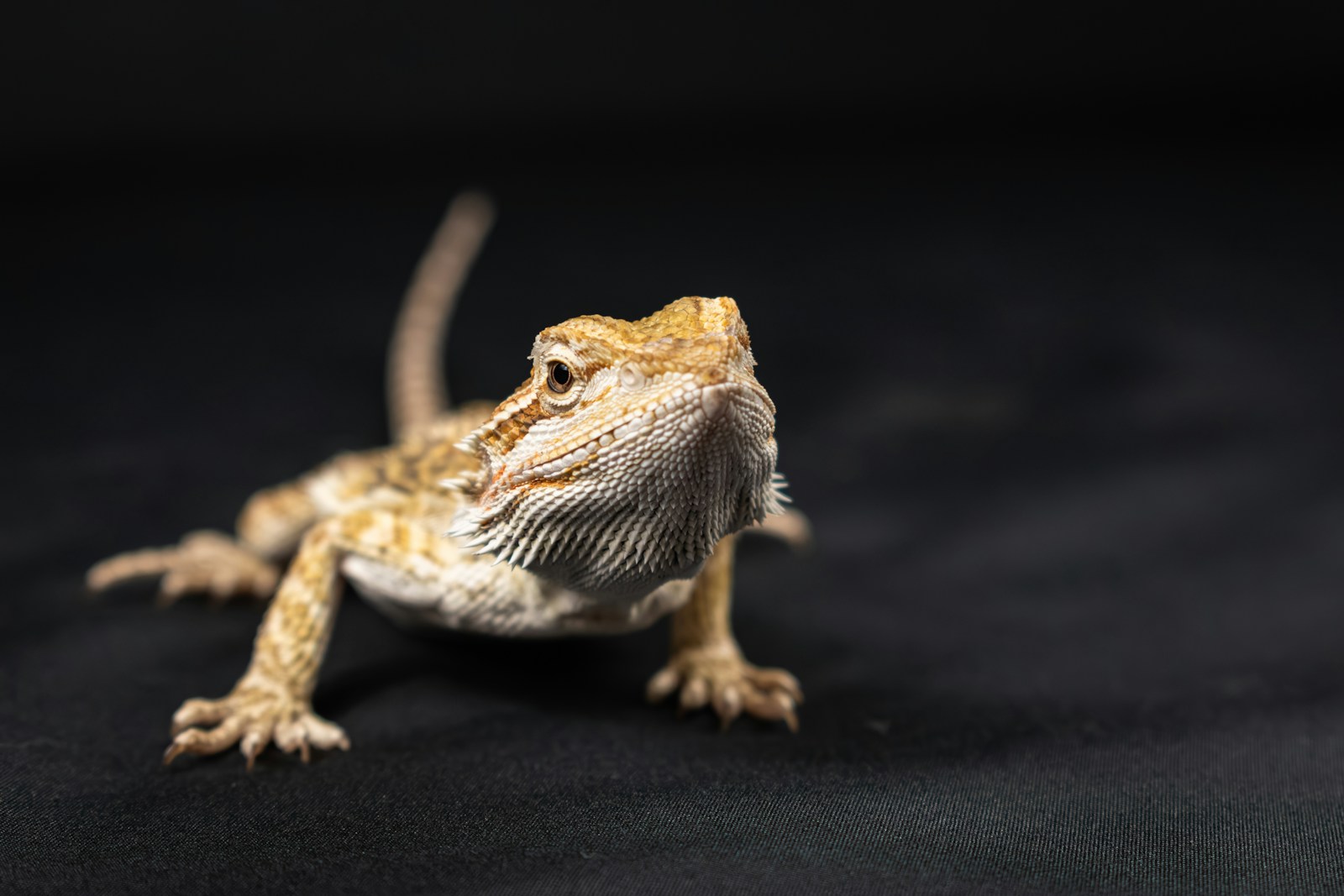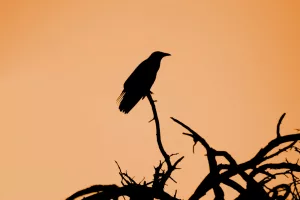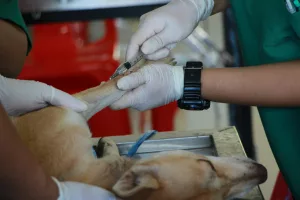It can be alarming when your bearded dragon suddenly refuses to eat its favorite food, especially if it was previously enthusiastic about meals. Bearded dragons are known for their diverse diets, which can include insects, leafy greens, fruits, and vegetables. A change in their eating habits can be concerning, but it’s not uncommon. There are several reasons why your bearded dragon might refuse food, ranging from environmental factors to health issues.
In this article, we will explore the most common reasons why a bearded dragon might refuse to eat its favorite food and offer potential solutions to encourage your pet to eat again.
1. Shedding
Shedding is a natural process for bearded dragons, and it can cause them to lose their appetite temporarily. When a bearded dragon is shedding, it may feel uncomfortable or itchy, which can reduce its interest in eating, even when offered its favorite foods.
- Symptoms: You may notice dull or flaky skin, particularly around the legs, tail, and face, as the shedding process begins.
- Solution: Ensure that your bearded dragon has proper humidity levels to help with shedding. You can also give it a warm bath to soften the shedding skin and make the process more comfortable. Once the shedding is complete, your bearded dragon’s appetite should return to normal.
Tip for Shedding:
Avoid stressing your bearded dragon further during shedding, as this can prolong their discomfort. Offer softer foods that are easier to eat during this time.
2. Brumation
Brumation is a period of dormancy that bearded dragons may go through, especially during cooler months. It is similar to hibernation in mammals and can last for several weeks or months. During brumation, a bearded dragon’s activity level decreases significantly, and they may stop eating altogether.
- Symptoms: Reduced activity, lethargy, spending more time hiding or burrowing, and decreased food and water consumption.
- Solution: If your bearded dragon is brumating, it’s natural for them to eat very little or not at all. You should continue to offer food periodically, but don’t be alarmed if they refuse it. Make sure your dragon has access to water and is kept in a safe and comfortable environment during this time.
Tip for Brumation:
Ensure that your bearded dragon is healthy before brumation begins by consulting a vet. Some bearded dragons may not brumate every year or may show only mild signs.
3. Improper Temperature and Lighting
Bearded dragons rely on specific temperatures and UVB lighting to properly digest their food. If the temperature in their enclosure is too low or they do not have access to adequate UVB light, it can impact their digestion and lead to a loss of appetite.
- Symptoms: Lethargy, decreased movement, and a lack of interest in food. You may also notice your bearded dragon spending more time in the cooler areas of its enclosure.
- Solution: Ensure that the basking spot in the enclosure is between 95°F and 110°F for adult dragons and around 110°F to 115°F for juveniles. The cooler area of the enclosure should be between 75°F and 85°F. Additionally, make sure your UVB bulb is working correctly and is replaced every 6 to 12 months, as the UV output diminishes over time.
Tip for Temperature and Lighting:
Use a digital thermometer with a probe to accurately monitor the temperature in your dragon’s basking and cooler areas. Also, ensure the UVB light covers at least 50% of the tank to provide sufficient exposure.
4. Stress
Bearded dragons can become stressed due to changes in their environment or routine, which can cause them to stop eating. Common stressors include new surroundings, loud noises, excessive handling, or the presence of other pets in the home.
- Symptoms: Glass surfing (scratching against the glass), hiding more than usual, black beard (a sign of stress), and lack of appetite.
- Solution: Try to identify any changes in your bearded dragon’s environment that may be causing stress. Ensure their enclosure is in a quiet, low-traffic area and avoid handling them too much if they seem anxious. Creating a calm, familiar environment can help reduce stress levels and restore their appetite.
Tip for Reducing Stress:
Provide plenty of hiding spots, such as rocks or caves, to make your bearded dragon feel secure. Keeping the enclosure clean and free from external disturbances can also help.
5. Illness or Parasites
A bearded dragon refusing to eat its favorite food may be a sign of an underlying health issue. Common illnesses include metabolic bone disease (MBD), respiratory infections, or digestive problems. Internal parasites can also cause appetite loss.
- Symptoms: Weight loss, lethargy, diarrhea, bloated appearance, breathing difficulties, or unusual stools.
- Solution: If your bearded dragon displays any signs of illness, it’s important to consult a reptile vet for a thorough examination. A fecal test can check for parasites, while X-rays or blood tests may be needed to diagnose other health conditions.
Tip for Illness:
Always monitor your bearded dragon’s behavior and stool for early signs of illness. Regular vet check-ups can help prevent and catch health problems early.
6. Overfeeding
Bearded dragons can become disinterested in their food if they have been overfed. Offering too many treats or large portions of food can lead to them refusing to eat, especially their staple foods like leafy greens or insects.
- Symptoms: Refusing food, weight gain, and lethargy. The dragon may ignore vegetables or insects if they have been given high-fat treats like mealworms.
- Solution: Evaluate how much you are feeding your bearded dragon and reduce the number of treats or portion sizes. Offer a balanced diet with the proper ratio of insects, vegetables, and occasional fruits. Stick to a regular feeding schedule to ensure they are not overeating.
Tip for Overfeeding:
Follow recommended portion sizes based on your bearded dragon’s age and size. For adult dragons, insects should be limited to a few times a week, with the majority of their diet consisting of vegetables.
7. Dietary Preferences or Food Boredom
Bearded dragons can become bored if they are offered the same foods repeatedly. Just like humans, they enjoy variety in their diet. If your dragon has been eating the same food every day, it may refuse it out of boredom.
- Symptoms: Refusing specific foods that were once favorites, pushing food around but not eating, or only showing interest in new foods.
- Solution: Try offering a variety of foods, including different vegetables, fruits, and insects. You can also change the way you prepare the food, such as cutting vegetables into different shapes or offering them at different temperatures.
Tip for Dietary Variety:
Rotate the foods you offer to keep meals interesting for your bearded dragon. For example, offer a mix of collard greens, mustard greens, and dandelion greens, and vary the insects between crickets, dubia roaches, and silkworms.
8. Dehydration
If your bearded dragon is not getting enough water, it may lose its appetite. Dehydration can occur if the humidity in the enclosure is too low or if they aren’t drinking water from their bowl or from misting.
- Symptoms: Sunken eyes, wrinkled skin, lethargy, and lack of interest in food.
- Solution: Ensure your bearded dragon has access to fresh water at all times and mist the enclosure daily. You can also give your dragon regular baths to keep them hydrated.
Tip for Dehydration:
Offer water-rich foods, such as cucumber or watermelon (in small amounts), to help increase hydration levels. Adding drops of water to their snout can encourage them to drink.
9. Age and Appetite Changes
As bearded dragons age, their appetite naturally changes. Juvenile dragons eat frequently because they are growing rapidly, but as they reach adulthood, their eating habits may slow down. Adult dragons typically eat less frequently and may become picky about their food.
- Symptoms: Older dragons eating less or skipping meals altogether.
- Solution: Adjust feeding schedules according to your dragon’s age. Adult dragons may only need to eat every other day, while juveniles should still be fed daily.
Tip for Age-Related Changes:
Monitor your bearded dragon’s weight and health, and consult a vet if there is a significant change in eating habits to rule out underlying health issues.
Conclusion
There are many reasons why your bearded dragon might refuse its favorite food, from natural processes like shedding and brumation to environmental factors like improper temperature and lighting. It’s important to observe your pet’s behavior and environment to identify potential causes and take the necessary steps to address them. If your bearded dragon continues to refuse food for an extended period or shows signs of illness, it’s essential to consult a veterinarian to rule out any serious health concerns.
By providing a balanced diet, ensuring optimal environmental conditions, and being attentive to your bearded dragon’s needs, you can help them maintain a healthy appetite and overall well-being.




